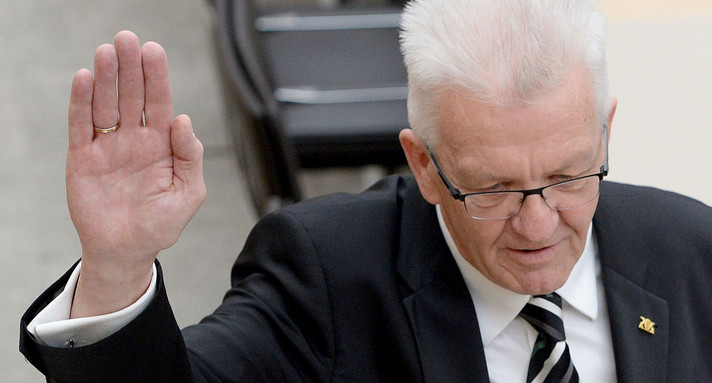The Minister-President leads the State Government. As Head of Government, he determines the guidelines of State policy.
The Minister-President holds an outstanding position within the political system of Baden-Württemberg. The strength of his position arises from comprehensive areas of competence vested in him by the State constitution.
Responsibilities of the Minister-President
His single most important task is set out in Article 49 of the State constitution, which stipulates that the Minister President shall determine and bear responsibility for guidelines of State policy. He chairs the Government and directs its business. The Minister-President also acts as representative of the State to the outside (Article 50), appoints judges and state officials (Article 51) and exercises the right to grant pardons (Article 52).
Election of the Minister-President
The Minister-President is elected by the State Parliament with a majority of votes cast in a secret ballot. The Minister-President then forms the State Government made up of ministers, state secretaries and counsellors. He also chooses his deputy. Before it is authorized to take up the business of governing the State, the Government also requires the endorsement of the State Parliament with a majority of over half the votes cast.
The Minister-President can only be voted out of office by what is known as a vote of constructive no-confidence: The State Parliament may only withdraw confidence if a successor is elected by a majority of its members.
The position of Minister-President requires a candidate who has completed his or her 35th year and who qualifies for election as a representative.
Official residence
The Villa Reitzenstein in Stuttgart is the official residence of the Minister-President and also the seat of the State Government. This is also the seat of the State Ministry, the Minister-President’s planning and coordination authority.


